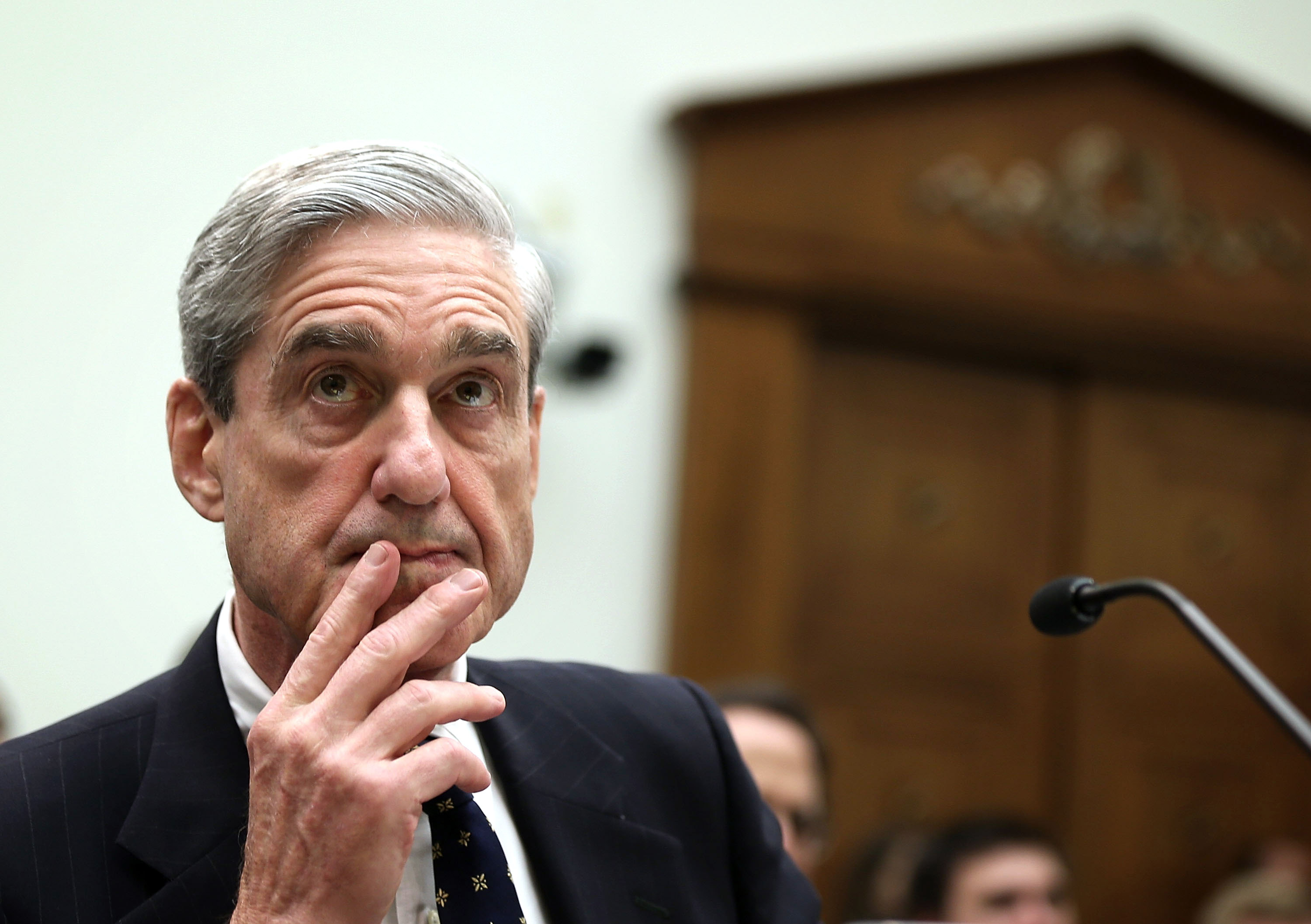- Special counsel Robert Mueller is interested in interviewing six key aides to President Donald Trump as he investigates Russia’s interference in the 2016 election. The aides were all witnesses to critical events that Mueller is examining. Those events include Trump’s decision to fire FBI director James Comey, the White House’s response to revelations that former national security adviser Michael Flynn could be vulnerable to Russian blackmail, and Trump’s role in drafting a statement responding to news that Donald Trump Jr. met with a Russian lawyer last June.
Robert Mueller, the special counsel in charge of spearheading the FBI’s investigation into whether President Donald Trump’s campaign colluded with Russia during the 2016 election, wants to interview six current and former Trump aides who may have information relevant to the investigation, The Washington Post reported Friday.
Those advisers include:
- Hope Hicks, the interim communications director Sean Spicer, the former press secretary Reince Priebus, the former chief of staff Don McGahn, the White House counsel James Burnham, who serves as senior associate counsel Josh Raffel, a top aide who works with Jared Kushner, Trump’s son-in-law and senior adviser
Each of the aides, The Post reported, was witness to critical discussions that have drawn Mueller’s scrutiny. Those events include Trump’s bombshell decision to fire FBI director James Comey in May, the administration’s inaction after it was informed that former national security adviser Michael Flynn could be vulnerable to Russian blackmail, and Trump’s role in crafting Donald Trump Jr.’s initially misleading statement about a meeting he took with a Kremlin-connected lawyer last June.
Both Spicer and Priebus worked closely with Trump when they served in the administration, and Hicks has long been one of the president’s most trusted advisers. She and Raffel were with Trump on Air Force One in July when he dictated the statement Trump Jr. first put out regarding his meeting with the Russian lawyer, Natalia Veselnitskaya. That statement had to be amended several times after it emerged that Trump Jr. had taken the meeting after he was offered damaging information about then-candidate Hillary Clinton as “part of Russia and its government’s support for Mr. Trump.”
Hicks and Raffel were among the advisers who believed the White House should release a truthful statement that could not be repudiated if more details surfaced later, the Post reported. They were ultimately overruled, and the special counsel is now scrutinizing Trump's response to determine what he knew about the meeting and whether he acted to conceal its purpose.
Raffel, who works at the White House Office of American Innovation, which Kushner is in charge of, joined the administration in April. He also previously represented Kushner Companies when he worked for Hiltzik Strategies, Variety reported.
White House counsel Don McGahn first drew focus after former deputy attorney general Sally Yates told the Senate Judiciary Committee in May that she had warned the White House about Flynn's conversations with Russia's former ambassador to the US, Sergey Kislyak, which took place during the transition period. Flynn did not disclose his contacts with Kislyak, and Yates said that she had "two in-person meetings and one phone call" with McGahn in January to discuss the matter. Yates also briefed Burnham, McGahn's deputy and another aide Mueller wants to interview, on the Department of Justice's findings about Flynn.

When Yates told McGahn that Flynn could potentially be subject to Russian blackmail because they were aware that he had misled Vice President Mike Pence about his conversations with Kislyak, McGahn asked her why the DOJ cared if "one White House official lied to another," according to Yates' testimony.
Yates told Democratic Sen. Chris Coons that, in the course of their meetings, "Mr. McGahn demonstrated that he understood that this was serious."
But she said she didn't know if the White House took any additional steps to restrict Flynn's access to sensitive or classified information.
Spicer was also involved in the Flynn controversy, telling reporters after The Washington Post reported on Flynn's conversations with Kislyak that the national security adviser had contacted the Russian ambassador to extend holiday greetings, not to discuss sanctions.
Flynn was ultimately forced to resign in mid-February following The Post's report and weeks after Yates first warned McGahn about his vulnerability.
McGahn was also a critical part of the process when Trump fired Comey in May, the New York Times reported last week. Comey's firing prompted deputy attorney general Rod Rosenstein to appoint Mueller as special counsel heading up the Russia probe. As part of his investigation, Mueller is reportedly looking into whether Trump fired Comey in an effort to stymie the FBI's investigation into his campaign.
The weekend before officially dismissing the FBI director, Trump put together a draft letter laying out his reasons for firing Comey, with the help of White House aides Stephen Miller, Jared Kushner, and Ivanka Trump.
McGahn reportedly advised Trump against sending the letter to Comey, and marked up the copy he was given to remove and alter certain details that he may have believed to be problematic.
"We don't know exactly what McGahn said, but the mere fact that he put a stop to that letter is another piece of evidence that Mueller could use" as part of the obstruction-of-justice case he is building, former federal prosecutor Renato Mariotti told Business Insider last weekend. If he finds out the details of what McGahn said to Trump, Mueller could "say that 'Donald Trump was warned by the White House counsel that this was a problematic step and decided to do it anyway.'"
The substance of what McGahn told Trump is important - and there's no guarantee that it could be withheld as privileged information, because attorney-client privilege does not hold between a government lawyer and a government employee in response to a grand jury inquiry.
If it emerges that McGahn "said anything along the lines of, 'There's potential criminal liability if you shut down this investigation,' that would be extraordinarily powerful evidence against Trump," Mariotti said.

